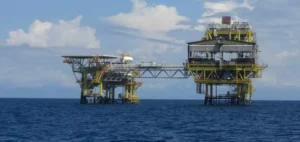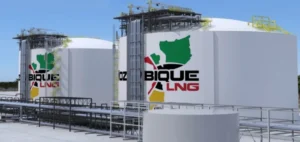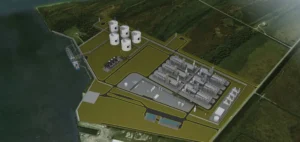TotalEnergies has announced its withdrawal from two offshore gas blocks off the coast of South Africa.
The blocks concerned, 11B/12B and 5/6/7, had revealed significant natural gas discoveries.
This decision, while welcomed by environmentalists, is a major step forward for TotalEnergies, raises economic issues for South Africa.
Development and value-added challenges
Block 11B/12B, covering 19,000 km² with depths ranging from 200 to 1,800 meters, has led to the discovery of two major gas fields at Brulpadda and Luiperd, located in the Outeniqua Basin, 175 km offshore.
The French group held a 45% interest in this block via its subsidiary TotalEnergies EP South Africa, in partnership with Qatar Petroleum (25%), CNR International (20%) and the South African consortium Main Street 1549 (10%).
Environmental impact and reactions
The project drew environmental criticism, notably from the NGOs Bloom and The Green Connection, who denounced the risks to local fishermen and marine biodiversity.
The area is a key migration and breeding ground for marine mammals such as whales.
Bloom sees TotalEnergies’ withdrawal as a victory for the climate and biodiversity, reducing potential CO2 emissions.
Economic and technical consequences
Independent analyst Thierry Bros points out that South Africa has lost an opportunity to monetize its gas, reinforcing its dependence on coal.
Technical and financial difficulties, notably the inability to agree a gas price with PetroSA, also weighed in the balance.
Difficult weather conditions and strong marine currents make exploitation costly and complex.
Gazprom’s entry and the geopolitical context
A decisive factor in the French giant’s withdrawal could be the South African Minister of Energy’s award of the project to re-commission the country’s main gas-fired power station to Gazprom in December 2023.
Due to international sanctions against Russia, the company could not risk collaborating with Gazprom, according to Bloom’s Swann Bommier.
Future prospects
Despite these withdrawals, the multinational continues to operate in four other offshore exploration licenses in South Africa, including one recently acquired in Block 3B/4B.
This series of withdrawals reflects the challenges faced by energy companies in developing new projects in a complex environment subject to multiple pressures, ranging from economic considerations to environmental issues.
The Group’s decision highlights the major obstacles to the commercialization and development of energy resources in certain regions of the world.
The French giant’s withdrawal marks a significant turning point for the industry and the ongoing energy transition, potentially influencing the future strategies of other players in the sector.





















